This site was created specifically for people from Canada, for quick acquaintance with the gambling industry online. In today's article, you can know all about Social Gambling in Canada. Our Canadian visitors have asked us so many times to write the review of "Gambling Addiction, Social Gambling in Canada" because of high interest in this topic. Well, the thorough investigation by our gambling expert had been already finished and we have collected here all useful information about Social Gambling in Canada in one review. You may read it now!
Social Gambling in Canada
Québec – Gambling Help and Referral
(514) 527-0140 Montreal and surrounding area
1-800-461-0140 and 1-866-767-5389 throughout province You could be living or working with a compulsive gambler and not know it until the problems are out of control. It’s crucial to recognize the signs and know how to get help.
Gambling Addiction
Addiction to gambling is linked to a range of serious personal and social harms such as depression and suicide, bankruptcy, family breakup, domestic abuse, assault, fraud, theft, and even homelessness. These effects can be devastating to the individual as well as their friends, family, workplace or community. That is why the Canada Safety Council considers gambling addiction a community safety and crime prevention issue.
People with gambling problems may cover up or lie when asked where they have been, or where money has gone. This makes problem gambling hard to identify. Families often know something is wrong — but not what is wrong.
You could be living or working with a compulsive gambler and not know it until the problems are out of control. It’s crucial to recognize the signs and know how to get help.
“People who gamble excessively fear their loved ones will find them out,” says Robert Murray, Manager of CAMH’s Problem Gambling Project. “This drives them deeper into hiding and further into debt. They hope against hope a big win will end their problems.”
CAMH has devised a simple checklist for the public to take a look at to help determine whether a family member or colleague has a gambling problem. The more clues you see, the more likely that gambling is a problem needing to be addressed:
- Is your family member or colleague often late for work or school?
- Are they gone for long unexplained periods?
- Do they neglect responsibilities, and make excuses?
- Have they withdrawn from family and friends?
- Do they have mood swings and sudden outbursts of anger?
- Is there less money available, even though income has not changed?
- Is money missing from the house or from bank accounts?
- Are they secretive and bad tempered about money?
- Do they have money conflicts with others?
- Do they talk about gambling all the time?
- Do they lie about gambling?
Counseling is the first step to regaining control of the problems that gambling has caused, and is the best way to find a long-term solution. Free treatment, including counseling, is available to anyone affected by gambling, including family members. A list of gambling help lines across Canada is available at: www.ccsa.ca ; search for “gambling help lines.”
Problem Gambling Helplines in Canada
Confidential and open 24 hours a day.
Alberta Alcohol and Drug Abuse Commission Helpline
1-866-332-2322
British Columbia Problem Gambling Information and Referral Service
1-888-795-6111
Manitoba Gambling Helpline
1-800-463-1554
New Brunswick Problem Gamblers Hotline
1-800-461-1234
Newfoundland and Labrador Helpline
1-888-899-4357
Nova Scotia Toll-Free Gambling Helpline
1-888-347-8888
Nunavut Kamatsiaqtut Helpline
Ontario Problem Gambling Helpline
1-888-230-3505
Prince Edward Island Gambling Addiction Treatment Program
1-888-299-8399
Québec – Gambling Help and Referral
(514) 527-0140 Montreal and surrounding area
1-800-461-0140 and 1-866-767-5389 throughout province
Saskatchewan Problem Gambling Helpline
1-800-306-6789
Source: Canadian Centre on Substance Abuse
Gambling in Canada
Bloomberg Creative Photos / Getty Images
Gambling in one form or another is permitted everywhere across Canada, but regulated by—and thus differs in—each of the country's 10 provinces and three territories.
Casinos, racetracks, lotteries, and other gaming organizations all must follow the laws as laid out by their governing province or territory. Where you are in Canada determines what type of gambling is legal or not and at what age you must be to participate.
Types of Gambling
:max_bytes(150000):strip_icc()/shining-spinning-golden-casino-roulette-gambling-and-casino-equipment-conceptual-background-177808483-583dd4525f9b58d5b13653ea.jpg)
" data-caption="" data-expand="300" data-tracking-container="true" />
Oleksiy Maksymenko / Getty Images
The types of legalized gambling offered in Canada range from commercial casino operations and racetracks to smaller bingo halls, Video Lottery Terminals (VLTs), slot machines, and ticket lotteries.
All legal gambling is regulated by the provinces and territories and therefore the available types of gambling differ across the country.
A certain amount of illegal gambling goes on in Canada by way of private betting houses, non-government-regulated video gaming and lottery machines, and online gambling, which poses an ongoing challenge to Canadian authorities.
Casino Gambling
:max_bytes(150000):strip_icc()/niagara-falls-casino-at-night-ontario-canada-177679847-583dd8375f9b58d5b1372a5c.jpg)
" data-caption="" data-expand="300" data-tracking-container="true" />
Henry Georgi / Getty Images
Casino gambling is probably the form of gambling that most appeals to visitors to Canada.
More than 100 casinos operate across Canada, though none in Newfoundland & Labrador.
Some of Canada's casinos, like the one at the sumptuous Manoir Richelieu or at Mont-Tremblant—both in Quebec—are in picturesque parts of the country and lure visitors for much more than the prospect of winning (or losing) money. Others, like the Niagara Fallsview Casino Resort in Niagara Falls, the Montreal Casino or Caesars in Windsor, Ontario, are big splashy, Vegas-style operations with live shows, restaurants, and shopping.
Age Requirements
:max_bytes(150000):strip_icc()/Casino_Mtl_aireJeu-2-5aac21781d640400365e1144.jpg)
" data-caption="" data-expand="300" data-tracking-container="true" />
The age requirement for getting into casinos in Canada corresponds to the drinking age and varies by province or territory.
You must be 19 to enter a casino everywhere in Canada except Alberta, Manitoba, and Quebec where the admissible age is 18.
This age requirement similarly applies to entrance to the restaurants and theatres within casinos.
Destination and Resort Casinos
:max_bytes(150000):strip_icc()/view-of-horseshoe-falls-and-casino-from-skylon-tower-niagara-falls-ontario-canada-177682093-583dd47e5f9b58d5b1366659.jpg)
" data-caption="" data-expand="300" data-tracking-container="true" />
Henry Georgi / Getty Images
Canada has many destinations and resort-style casinos that are particularly popular with visitors. Many of these casinos have on-site accommodation, restaurants, shopping, live shows, and picturesque locations.
Ontario
- Ontario has the most casinos at more than 25 and four of these are resorts.
- Niagara Fallsview Casino Resort and Casino Niagara, both in Niagara Falls; Casino Rama in Orillia about an hour and a half north of Toronto; and Caesars in Windsor, just across the border from Detroit.
British Columbia
- Lake City Casino in the beautiful Okanagan Valley, close to wineries and golf courses.
- St. Eugene Golf Resort & Casino is set in the Rocky Mountains.
- River Rock Casino Resort is a sprawling complex full of all the indulgences in Richmond, B.C.
Quebec
- The casino at the Manoir Richelieu in Charlevoix, Quebec is about as gorgeous as a casino gets in this historic riverside hotel.
First Nations Casinos
:max_bytes(150000):strip_icc()/Casino-Rama-Orillia-5aac22b304d1cf00364cb7e4.jpg)
" data-caption="" data-expand="300" data-tracking-container="true" />
P199 / Wikimedia Commons / CC BY-SA 3.0
A number of Canada's casinos are operated by First Nations tribes on First Nations reserves and are open to the public. One of the biggest is Casino Rama in Orillia, north of Toronto in Ontario, where visitors flock to try their luck at the tables or slots as well as to see live performances by big-name acts that have included Jerry Seinfeld, Carrie Underwood, and Diana Ross.
A Brief History of Gambling in Canada
:max_bytes(150000):strip_icc()/row-of-slot-machines-in-a-casino--82877875-5aac23edc673350036358c33.jpg)
" data-caption="" data-expand="300" data-tracking-container="true" />
Monashee Frantz / Getty Images
Once a relatively benevolent past time, gambling in Canada has become a more accepted and integral leisure and recreational activity. Today, under regulations of the provincial and territorial governments, gambling options are available through charities, private operators licensed by the government, and through the Canadian aboriginal people of the First Nations.
Gambling's widespread acceptance in Canada began in 1969 when the Criminal Code was changed to allow the provinces and territories to raise funds for worthwhile causes through regulated lotteries. For example, the Montreal Olympics received funding from such lotteries. Today, lotteries are big money makers for Canada's provincial and territorial governments, and government regulated gambling has grown to include ticket lotteries, horse racing, charitable gaming (including bingo), casino-style gambling, video lottery terminals (VLTs) - though not all these forms of gambling are available everywhere in Canada.
Social Gambling in Canada
Canucks welcome you and your money, and they will readily offer you a seat at a poker table. The great White North is no stranger to games of chance and 22Bet bonus codes. Indeed, gambling in one form or another can be found anywhere where there are people in Canada. It is worth noting that gambling regulations are different in Canada’s provinces and territories.
Casino Gambling
This is the most popular type of gambling among Canadians and tourists. You can find casinos everywhere, with the exception of three of Canada’s provinces. That’s right, there are no casinos in Prince Edward Island, New Brunswick and Newfoundland & Labrador. On the other hand, Ontario has the most casinos in Canada – 25. Additionally, First Nations are in charge of many casinos in Canada.
Online Gambling
Is this even legal? Unlike casino gambling, online gambling in Canada is not exactly widespread. The Criminal Code from 1892 originally banned all gambling with the single exception of betting on horse races. Since then, the Code has been amended time and time again. The latest result of these amendments informs us that it is illegal for an operator to accept wagers without the explicit license from the state. On the other hand, as a user, you are more than welcome to place as many online bets as you like. Talk about confusing, right? It is still unclear whether this applies to Canadians, visitors or both.
Sports Betting
Sports betting is legal only if provided by the provincial government. If this doesn’t dissuade you from trying to bet on sports in Canada, you may want to consider the fact that their sportsbook isn’t all that extensive nor impressive. Indeed, when you do manage to find a game you want to bet on, you will most likely discover that the odds are not in your favor, though not in the way you think. It simply doesn’t pay to bet on sports. Additionally, if you plan to bet on Canadian sites, but do so offshore, there’s even a small chance that your deposit will not go through.
Terminal-based Gaming
Fortunately, there is no regulation regarding terminal-based gaming in the Criminal Code. In other words, it is regulated by each individual province, rather than the Code, since it falls under the definition of a lottery scheme.
 Social Gambling
Social Gambling
Social gambling is not regulated by the Criminal Code, in pretty much the same way as online or mobile gaming. The rule of thumb is to follow the Criminal Code, regarding playing games that involve skill only, or games that are played strictly for fun. Those types of games are not prohibited. In other words, if there’s luck involved, or if there is a possibility of redeeming your winnings into actual currency, it might be better for you to sit out on that party night planned with your friends – legally speaking.
Where Does That Leave Us?
Basically, if you don’t want to jump through hoops to get to your winnings, or to make sure what you are doing is undoubtedly legal, your best bet (pun intended) is to stick with casinos. Each establishment has to answer to their province, and, in so doing, provides a safe gaming environment for your pleasure. It may take some time before you get the feel of gambling regulations in the North.
Problem Gambling
Gambling becomes a problem when it affects a person’s daily activities, mental/physical health, reputation and relationships, and hurts their finances.
Overview
Problem gambling is not just about losing money. Gambling problems can affect a person’s whole life. Gambling is a problem when it:
- gets in the way of work, school or other activities
- harms the person’s mental or physical health
- hurts the person financially
- damages the person’s reputation
- causes problems with family or friends.
Not all people who gamble excessively are alike, nor are the problems they face. People with gambling problems are found in all age groups, income groups, cultures and jobs. Some people develop gambling problems suddenly, others over many years.
Gambling problems occur along a continuum. These are not discrete categories but possible points along a range of involvement, from not gambling at all to pathological gambling.
No gambling: Some people never gamble.
Casual social gambling: Most people gamble casually, buying the occasional raffle or lottery ticket or occasionally visiting a casino for entertainment.
Serious social gambling: These people play regularly. It is their main form of entertainment, but it does not come before family and work.
Harmful involvement: These people are experiencing difficulties in their personal, work and social relationships.
Pathological gambling: For a small but significant number of people, gambling seriously harms all aspects of their lives. People with gambling problems this severe are unable to control the urge to gamble, despite the harm it causes. They are more likely to use gambling to escape from problems and to get relief from anxiety.
Signs & Symptoms
Gambling problems share many similarities with other addictive disorders. However, there are no visible signs or physical changes that will indicate a gambling problem.
Instead, there are common behavioural, emotional, financial and health signs.
Behavioural signs of problem gambling
- stops doing things he or she previously enjoyed
- misses family events
- changes patterns of sleep, eating or sex
- ignores self-care, work, school or family tasks
- has conflicts with other people over money
- uses alcohol or other drugs more often
- leaves children alone, seems less concerned about who looks after them, neglects their basic care
- thinks about gambling all the time
- is less willing to spend money on things other than gambling
- cheats or steals to get the money to gamble or pay debts
- has legal problems related to gambling
- is often late for work or school
- organizes staff pools
- is gone for long, unexplained periods of time.
Emotional signs of problem gambling
- withdraws from family and friends
- seems far away or anxious, or has difficulty paying attention
- has mood swings and sudden outbursts of anger
- complains of boredom or restlessness
- seems depressed or suicidal.
Financial signs of problem gambling
- frequently borrows money or asks for salary advances
- takes a second job without a change in finances
- cashes in savings accounts, RRSPs or insurance plans
- alternates between being broke and flashing money
- has family members who complain that valuables and appliances are disappearing or that money is missing from a bank account or wallet.
Health signs of problem gambling
The person complains of stress-related health problems, such as:
- headaches
- stomach and bowel problems
- difficulty sleeping
- overeating or loss of appetite.
Causes & Risk Factors
There are many reasons why a gambling problem may develop. For example, some people develop problems when they try to win back money they have lost or because they like to be “in the action.” Others have many life stresses and consider gambling a welcome relief.
Various risk factors can contribute to the development of gambling problems or make it more difficult to stop. People are more at risk if they:
- have an early big win (leading to false expectation of future wins)
- have easy access to their preferred form of gambling
- hold mistaken beliefs about the odds of winning
- do not take steps to monitor gambling wins and losses
- have had a recent loss or change, such as divorce, job loss, retirement or death of a loved one
- often feel bored or lonely, or have a history of risk-taking or impulsive behaviour
- have a history of mental health problems, particularly depression and anxiety
- tie their self-esteem to gambling wins or losses.
The more factors that apply, the more likely a person is to develop a gambling problem.
Diagnosis & Treatment
Free treatment, including counselling, is available to anyone in Ontario affected by gambling. This includes family members. Counselling can help people understand why they gamble, so they can stop, cut down or change their gambling. It can also help repair hurt feelings and regain trust with family members.
In most areas, an agency that offers specialized counselling for problem gambling is available close to home. In addition, telephone counselling and a self-help guide are also available. Credit and debt counselling services, family counselling and other resources may also be helpful. The Ontario Problem Gambling Helpline can link people to the support and resources they need. It is open 24 hours a day.
Counselling for the person who gambles
People often ask if they will have to stop gambling to begin counselling. Only they can decide to quit gambling. A counsellor should not pressure the person to make changes before he or she is ready.
Gambling affects people and their families in different ways. Problem gambling counsellors provide information about gambling. They help people look at their options, so they can decide what is right for them. This may include taking a break from gambling. Some people know right away what actions they want to take, and others aren’t sure. Either way, taking a break from gambling can help. Then the person can think about how gambling affects him or her and how to get back in control.
Counselling is a learning process. With new information, people can make good decisions. Counsellors can help them solve their main problems. This may include fixing a financial situation, healing family relations and restoring trust between the person and his or her partner.
Counselling for family members
When someone has a gambling problem, it can be hard for other family members to find hope for the future. Counselling can help them see that things can change. It can also help them see their family’s strengths and the positive steps they may already be taking.
An Overview of the Est. $4.4 Billion Social Casino Gambling Market

I saw a stat (pulled from a decade ago) that said more than 1.6 billion people gamble each year.
Knowing that, would you be surprised to hear that even more people play social casino games? One statistic said that more than 11 million users visit the top social casino games on Facebook daily.
That comes out to more than 4 billion users per year. About 2.5x the number of people who gamble for real money.
Now, that is only the user-base and not money spent or earned. Social games are nowhere near traditional gambling in that sense, where traditional gambling generates $100+ billion each year.
But social gambling is still brand new, and it’s still growing. It’s currently a $3.4 billion niche market with experts estimating it’ll reach $4.4 billion by 2017. It makes up 4% of the overall $91 billion social gaming market – which is comparable to traditional gambling.
The point is this: social casino gaming is a big deal.
So big, in fact, that many traditional poker and casino companies are buying their way into this space. We have a few examples later on, but the most current example is the World Poker Tour. On August 31st, 2016, they announced the launch of their social casino platform, PlayWPT, which includes both poker and slot games.
Anyway, chances are you’re already familiar with social games. Maybe you already have a favorite social slots or blackjack game you play. If not, then we’ll bet you’ve at least seen these games on your Facebook.

If not, that’s okay too. Either way, you’re about to learn (more) about social casino gaming. The following sections will cover:
- What social gaming is.
- How social gambling is different from traditional gambling.
- Social gambling companies and games.
- Risks and downsides (including addiction).
- Thoughts on why social gambling is legal while many forms of (online) gambling is not.
- What the future has in store for social gamers.
What is Social Gambling?
If you do any amount of research on this topic, you’ll quickly find out that everyone has their own definition of what social gaming or social gambling is.
It’s even more confusing when you talk about gambling because social gambling can also mean poker and casino games you play in a home with other people.
But, for our purpose here, social gambling means playing casino games on social networks like Facebook or MySpace.
These games are usually played in your browser or from a mobile app on your tablet or phone.
First timer? Getting started is simple. Here’s the process I went through to launch Zynga Poker on Facebook:
- Logged into Facebook.
- Typed “poker” into the search bar. Found and clicked Zynga Poker.
- Chose what details I wanted to share with them.
- Declined offers to purchase chips or upgrade my account.
- Chose the SNG section. Chose a game to enter.
That’s it. Each game is different, but getting started is as simple as playing at a traditional poker room or casino – minus the need or option to deposit real money.
And that’s because you won’t find real money social gambling. For various reasons. It’s illegal in some countries, and in others …well, real money games have been attempted, but ultimately failed.
To be clear – you can spend money. You can buy chips, gifts for other players, VIP upgrades and all kinds of stuff. It depends on the game you play. But for various reasons – some we discuss below – you won’t receive anything of tangible value.
What Makes Social Games …Social?
What makes these social games – other than being hosted and played on a social network – is that most games include some form of social interaction. This can include any combination of the following:
- Playing with other players.
- Sharing your results with your friends or followers.
- Inviting others to play the game with you.
- Posting awards, accolades and achievements to your profile.
This in turn can create a viral effect that can quickly build a self-sustaining, perpetuating user-base for the game. Assuming the game’s any good, of course.
This is a bit different from traditional gambling in that they need to rely more on advertising and affiliates to grow. Part of this is probably due to the stigma that follows traditional gambling, whereas social gambling isn’t scrutinized as much.
On a smaller level, social gaming companies use different strategies to get you to share and come back to play their games. In many ways they mirror traditional video games, even though social games are less challenging and have shorter game play.
For example, here are two common strategies developers use:
You are given different goals to achieve, each one harder and more time consuming than the last. Each action you take will push you towards a goal that can lead to higher gaming capital.
This comes in many forms, such as badges, trophies, accolades and achievements. These can be earned by playing or by completing tasks, such as sharing the game or your results to your profile.
Gaming capital is one of the biggest differences between social casino games and traditional casinos. The former you’re playing for virtual goods, which we’ll talk more about later, whereas in the latter you’re playing for real money.
From a developer and psychological perspective, they do this to give you meaning; to justify all the time you spend playing or to gain an improved sense of self and to complete goals (thus complete a sense of self).
You also have reason to come back to play more.
Examples of Social Gambling Games
Now that you know what social games are and have an idea of how they work, let’s look at some examples of the top social games, social casino developers, and the games you can play.
Let’s start with the most popular social games. Chances are you’ve heard of some of these:
- Mob Wars
- FarmVille
- Mafia Wars
- CityVille
- Farm Town
- Texas Holdem Poker
- Slotomania
- Blitz Bingo
Here are some of the larger and more well-known social game developers:
- Zynga
- Wooga
- Gameforge
- Bigpoint Games
- Goodgame Studios
- Plinga
- Kabam
- RockYou
Now let’s now look at social casino developers and games. Who are the biggest or most popular developers? And, what are the most popular casino games you can play?
You can play slots and more slots. You can play from your browser or on your tablet or phone using their app. When you sign up they’ll give you free coins to play with. They have more than 5 million users and developed by Playtika (http://www.playtika.com/), who happens to be owned by Caesar Interactive Entertainment.
Bingo Blitz (https://www.bingoblitz.com/)
Also developed by Playtika. Play slots and bingo with unique features such as power ups, collection items and achievements. They have more than 5 million followers on Facebook.
They’ve developed many games, but their specific casino games include Zynga Poker, Zynga Poker Classic, Hit It Rich! Slots and Wizard of Oz slots. Their Texas HoldEm Poker app has 66,779,000+ likes and more than 5 million players. You can see their casino games here.
DoubleDown Casino (http://www.doubledowncasino.com/)
This is from IGT. They offer more than 70 different slots, as well as video poker, blackjack, roulette and more. One of the benefits to playing here is you get to play slots like Wheel of Fortune, Double Diamond, DaVinci Diamonds, The Ellen DeGeneres Show slots – and many others exclusively from IGT. They have more than 7.6 million Facebook followers and 1 million players.
Big Fish Casino (http://www.bigfishgames.com/)
They offer a large variety of games, too. You can play craps, slots, blackjack and roulette. They offer 100,000 free bonus chips, free spins, bonus games, jackpots and free daily games. They have more than 759,000 followers and 100,000 users.
High 5 Casino (https://www.high5games.com/)
Play more than 170 slot machines. They have more than 1 million followers and 13 million users.
There are many others. We haven’t even begun to scratch the surface. A search on Facebook or in the Apple or Android app store will reveal tons of game and app options.
The 5 Biggest Differences Between Social Casino Games & Traditional Gambling
Let’s now look at 5 examples of how social casino games are different from traditional casino games. Keep in mind many, if not most of these examples will apply to ALL social network games – not just casino.
- You have the community vibe. This is more the case with games like blackjack and poker, though, rather than slots and roulette.
- It’s sharable. You won’t see someone bragging about how they’re playing slots on 888 or poker on 5Dimes. Too many people have negative views on traditional gambling.
However, since no money’s at risk, people are less wound up about freemium or social casino games. Thus, more people are open to sharing their results.
How Social Casino Developers Make Money
Believe it or not, these companies don’t exist just to entertain you. They’re also in it to make money.
Here are the different ways they accomplish that:
Virtual Goods
This covers a wide assortment of things. This can be power ups, more chips/coins, avatar accessories, decorative items or virtual gifts you can send to another player. Often times – depending on the game – virtual goods can help you get farther in the game, or achieve a higher score.
Advertising
This can include banner or contextual advertising, much like you’d see on websites, apps on your phone, on Google’s search engine, and more. Ad inventory is offered to advertisers; when an ad is shown, or when a user clicks the ad, money is both spent/earned.
Product Placement
This is sort of like a movie or TV show. A game can inject a product or brand into the game in some way. In-game product placements can cost hundreds of thousands of dollars depending on the placement and how popular (how many users, activity, etc.) the game is.
Lead Generation
This often goes hand in hand with advertising. However, what’s unique about lead generation in social gambling is you’ll see offers to sign up for goods or services in exchange for virtual gifts – some form of advancement or in-game perk.
White Label
The developer creates the game, but leave it open for branding. Then someone can buy/lease the game – likely with their own plans for monetization – and brand it however they want.
These are the most common monetization methods. However, sometimes a developer will try a unique way to make money.
Take Zynga, for example. Back in 2013 they decided to launch both real money poker and casino apps to the 18+ crowd in the UK on Facebook.
But no more than 14 months later they decided to close both real money options because they struggled to convert free money players into real money players. This is a challenge even online casinos and poker rooms struggle with today.
Are There Any Downsides or Risks to Social Gambling?
Are there any actual consequences to social gambling?
We found an interesting interview at VegasSlotsOnline.com where game developer Diana Gruber talked briefly about social gambling.
One of the interesting things she pointed out is that social gaming is more like shareware than traditional gambling. Here’s why that’s interesting (emphasis ours):
Yes, because gambling is regulated and shareware is not. In a shareware game, anything goes. You can completely control the player experience. You can make their luck run in streaks. You can give them volatility like a roller coaster. You can change the RTP so they win all month and go broke on payday. If you have an idea and you think it will give you a competitive edge, there is nothing stopping you from trying it in a social gaming environment.
Social casino developers can do anything. They can create a faux experience that is unlike what you’d actually experience in a real money casino.
It might lead the person to signing up to a real money casino with unrealistic expectations. Or, maybe manipulate them into buying in-game purchases to try to win more often.
Can you see how this could be dangerous?
Dr. Mark Griffiths, a Professor of Gambling Studies at Nottingham Trent University’s International Gaming Research Unit, agrees (emphasis ours):
Dr. Griffiths says that the behavioural and social conditioning of social slots and gaming is no different to real-money gambling, apart from the fact you’re not “risking” real money:
But here’s where we think “it depends.”
We feel like there’s got to be some personal accountability. That the person playing should have educated themselves on how gambling works. And, at the very least that the casino has an advantage on nearly every bet made under their roof.
That’s what we mean by “it depends.” At some point you have to place the responsibility onto the player.
But that’s in a perfect world, not the one we live in. And we have to create laws, rules and regulations that protect the lowest common denominator – the gullible people who fall too easily for pipe dreams.
Anyway …that’s one potential danger.
Another is the addictive nature of these games. They’re still casino games, which encourage you to play more through bells, whistles and small wins.
Then there’s the achievement aspect of these games. Where you’re encouraged to play as much as you can to achieve as much as you can. This is even more addicting when you’re able to share this to social platforms to brag to your friends – or challenge them to beat your score.
According to Dr. Griffiths this can be bad too. That addictions don’t have to come down to winning or losing money. But that addiction can also come in the form of time spent. The time you lose playing these games can have a negative impact on your life, too.
And then you have the risks associated with freemium games that have in-game purchases. No doubt you’ve heard the stories of kids or teenagers playing freemium games, only to buy in-game options or cheats to advance levels or unlock stuff.
Their parents don’t know any better …until the phone bill comes in the mail, with hundreds or even thousands of dollars in additional charges.
So, those are some of the bigger risks or downsides to social casino games. It’s still gambling, and depending on the game you play, there are still opportunities for you to spend money …even lots of it.
But not everyone agrees social casino gambling is dangerous. According to Christoph Jenke, the COO of social betting game Crowdpark:
No idea – he’s certainly biased. But lawmakers have no idea, either. They’re still trying to figure out whether social gambling needs to be regulated or not.
Why is Social Gambling Allowed When Real Money Gambling Isn’t?
Because social gambling games are similar, if not identical to real gambling games – and also have addictive qualities – there have been many debates about whether or not social games need to be regulated.
Probably the biggest reason why they’re legal in the United States is that you can’t get/win money out of the game. That’s the conclusion Venture Beat came to back in 2009.
First, they brought up both the Wire Act and UIGEA. But both of these are vague and don’t cover apps.
Then they talked about each individual state. Each state defines gambling as betting on a game of chance. But then some games are a game of chance in one state, while in others it’s a game of skill.
The one common denominator they found is that gambling involves putting up something of value to get something of value back out. And that’s something that applies to most states, too. So, they took that and applied it to a social casino app.
Here’s their thought process:
- You (can) put money into the system. Just like a traditional casino game.
- What about the game? Is it a game of skill or game of chance? The powers to be says it doesn’t matter because you can’t collect money from it.
- But what about virtual goods – what are they worth? How do you define their value? Now this is where things get interesting.
One example they gave was about how, in Japan, you can play Pachinko (a casino-like game) and earn currency in the form of small metal balls. These balls can be traded for real-world items – even cash – without consequence. They concluded – and we agree – this isn’t any different than traditional gambling.
Venture Beat asked Matt Jacobs, a Sacramento-based former federal prosecutor who has worked on some gambling related cases. Here’s what he had to say:
One of the potential issues in some games is how you get virtual goods out. Game developers will say ‘they’re not really being played for money, that what you win is not money.’ I’m not sure that this ultimately works. You’re getting something of value, or at least of arguable value. These goods are advertised as costing money, even just a buck or two. You can win virtual currency that’s clearly equivalent to real money, and use that to buy virtual gifts.
Makes sense. And it’d mean that receiving anything – even small metal balls – would be illegal in the United States. Especially if they were exchanged for goods or money – even if on the secondary market, as you’ll see in a second.
Then Venture Beat looked at Zynga’s Texas Holdem. They wanted to see if it fit the definition of gambling. Back then this game brought in the largest portion of the company’s revenue.
- You get chips when you sign up. You get even more each time you log in.
- Then the game lets you buy virtual chips or take advertising offers to get them. This is also how you reach the top tables without having to earn your way.
So, what happens to your money? Zynga’s chief executive says, nothing – you can’t take money out of the game in any form of value. You don’t even win virtual prizes that are worth money.
And that seems to be the one key difference – the very reason why you can play social casino games legally in the United States. Money can go in, but you receive nothing of tangible value in return.
That said, there are second hand markets for virtual goods such as Zynga chips. These sites are often credit card fraud rings who buy chips and then re-sell them. And the crazy part?
Social gaming companies are responsible for them – what they do and what they sell – whether they own them or not. This is seemingly unlike Japan, where companies apparently are getting away with players exchanging their metal balls for things of value.
Speaking of virtual goods, Venture Beat also considered the virtual gifts you can send to others. The law is even cloudier here. Facebook, at the time, limited you to sending 16 gifts per day, which only cost 5-10 in game chip-dollars (that’s nothing compared to the number of chips you receive when you log in).
In terms of value, the question posed was whether you were getting any value outside of the thought of posting a gift to someone’s wall. Maybe not, but then what happens if/when that gift’s actually worth something? When it has verifiable retail value – what do you do then?
That’s what lawmakers will have to figure out if they want to regulate the market – if they even see a need to. Who knows? Like traditional gambling there are people on both sides of the debate.
For now, it seems to be fine so long as you’re not receiving anything of value.
What Does the Future Hold for Social Gambling?
Another interesting thing we found from Venture Beat was their coverage of the 2015 Casual Connect Tel Aviv conference. There, Adam Krejcik, an analyst at Eilers Research, provided his 13 predictions of the social casino market.
Most of them apply to social game companies. However, he did predict a handful of things players will find exciting.
Developers will create more skill-based games.
They’re looking at the current trends – esports, daily fantasy sports betting and the general focus on skill gaming (which you can see in other social gaming apps like Candy Crush). They said random games of chance tend to appeal to the older crowd. Adding skill games will allow them to reach to the younger crowd.
Live dealer games will become more popular.
This is similar to traditional online gambling. They said some companies are experimenting with live dealers in order to make the came even more social. They say poker is a good example. But we think blackjack, baccarat and roulette would be good choices, too.
Casino games will monetize on Oculus Rift.
Adam thinks it’ll be a while before VR googles become a big market. But when they do social casino games will be one of the first genres to monetize it well – by creating an entertaining and engaging Vegas-style experience.
Big gaming equipment suppliers will open up.
He says that the big known slot machine makers like IGT already have their own social casino games (like the DoubleDown casino we mentioned earlier). He thinks customers will want more, and may even force suppliers to license their digital social games on a third party basis. In other words, your favorite real money casino games may be ported online to social media platforms.
Amaya (and PokerStars) will get serious about social games.
PokerStars is the biggest real money poker room and casino online. And because social casino games are such a lucrative market, it’s only a matter of time before they enter it.
You can read all of their predictions here. All we know is we’re excited to see what
10 Best Casinos In Canada To Enliven Your Spirits!
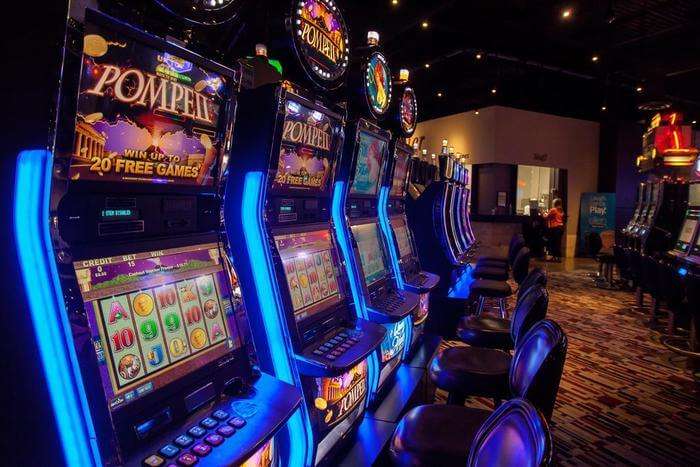

Canada is one of the most attracted and visited sites of the world. Canada is also one of the favorite destination for casino lovers. It welcomes an assortment of tourists from everywhere on the globe which approximately counts up to over 25 million in 365 days. It is a fact that Canada is the center for a number of casinos. The casinos are developed by the gaming industry where various gambling activities are held in a club or a house. Casinos mean a small house or club and the best part of Canada is casinos. In the present time, casinos are the games of high standards in the world which are most of the time found attached to the hotel, restaurant, or any social club. Not only that but these casinos are also available over the internet for playing. The revenue crosses about $ 5000 M for casinos in Canada itself.
10 Best Casinos In Canada
The highly visited destination consists of the highly visited casinos. Here is the list of top 10 casinos in Canada
1. Casino Niagara, Ontario

Casino Niagara is one of the best casinos in Ontario Canada. It was established as a land casino in December 1996. There are over thirteen thousand slot-machines available here with 30 gambling tables. Also, a poker room is provided for big players. Casino Niagara has a multiple purpose sports section which always seems to be exciting for the new players.
It also manages 4 popular restaurants with a desirable live entertainment on the nights of Friday & Saturday.
Location: 5705 Falls Ave, Niagara Falls, ON L2E 6T3, Canada
2. Casino De Montreal, Quebec

Casino De Montreal is considered as one of the largest casinos of the world located in Quebec and the largest casino in Canada. It is situated on the banks of Norte Dam of Montreal. On an average, its everyday visitors are around 18,000. It has over one hundred gaming tables with other 4 gourmet casinos. They provide quality game and food. The best thing about the casino is that people who are 18 or above can make an easy visit there.
Location: 1 Ave. du Casino, Montréal, QC H3C 4W7, Canada
3. Caesars Windsor Hotel And Casino, Ontario
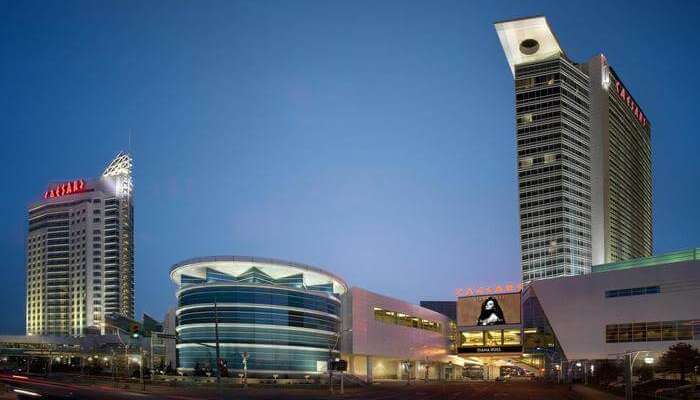
Caesars Windsor Hotel and Casino is one of the casinos in Canada map. It manages both hotel and casino at the time. Also, the Casino Player Magazine has mentioned this casino as the biggest casino in Canada for 16 years consecutively. The poker room of the casino has more than 14 tables with a lobby of slots and gaming tables. You can enjoy yourself in a sports park here.
Location: 377 Riverside Dr E, Windsor, ON N9A 7H7, Canada
4. Casino Rama Resort, Ontario
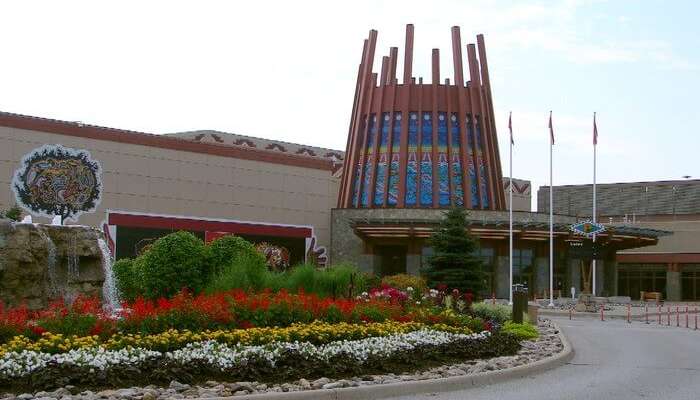
The rich power and selections of slots are duly mentioned in the Casino Rama. It is opened from 20 years with remarkable results. The players can make their way through 25 thousand machines in a lobby. There are 8 unique restaurants with 110 gaming tables for entertainment. A tournament can be easily initiated here. Some of the performers like Carrie Underwood and Jason Derulo make the evening of the casino. It is filled up with many dancers for entertainment.
Location: 5899 Rama Rd, Orillia, ON L3V 6H6, Canada
5. River Cree Resort And Casino, Alberta
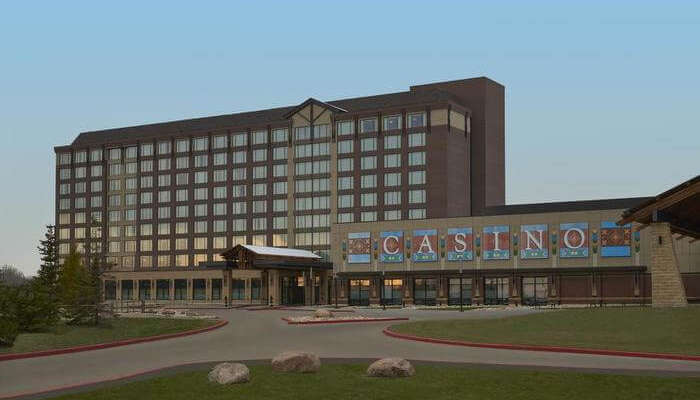
It is the first casino established on the soil of Alberta. It has an exciting series of machines slot of over 1100. With 39 tables and a poker room, Cree Resort Casino is one of the best casinos in Alberta. It has a membership card for visitors for free of cost. You can earn as many points by visiting daily and extending your validity of the card. There are a number of tournaments conducted here daily.
Location: 300 E Lapotac Blvd, Edmonton, AB T7X 3Y3, Canada
Planning your holiday but confused about where to go? These travel stories help you find your best trip ever!
Real travel stories. Real stays. Handy tips to help you make the right choice.

Ramya Narrates The Story Of 6 Girls On An Extraordinary Trip To Thailand
Bangkok. Phi Phi. Krabi. Why should guys have all the fun?


Sandeep Illustrates On The Best Activities For A Family Trip To Mauritius
Water sports. Cocktail parties. And unlimited fun at Casela.


Nisarg Can't Stop Praising His Honeymoon Trip To Maldives
There was snorkeling, sightseeing, luxury, comfort, & much more!


Sabyacsachi's Romantic Trip Proves Europe To Be The Mother Of All Vacations
For Art, Culture, Luxury, & more.


Srishti Talks Of Her Amazing Trip To Singapore With Her Mother & Niece
A fun-filled destination for ages indeed!


67-Year Old Sridhar Tells How He Beat The Odds & Took A Solo Trip To Dubai
Desert safari. Burj Khalifa. Welcoming locals. Tell me more!


Not Adventure Lovers? Saurabh's Family Trip Proves Hong Kong To Still Be Full Of Fun
Your kids will love Disney Land & Ocean Park!


Ravi's Tale Of A Sri Lanka Family Tour Is All You Need To Know About Ramayana Tour
For the love of Ramayana & Travel!

See more at TRAVELTRIANGLE.COM
6. St. Eugene Golf Resort Casino, British Columbia

It is a really posh casino in Canada. With 240 slot machines and 4 table games, the St. Eugene Casino is not a 24/7 casino. You will also find a gourmet restaurant and a gold course. The combination of the lush casino and mesmerizing scenery makes it one of the most visited casinos in Canada. The off-tracking betting room and service lobby is the fascinating part of the casino.
Location: 7777 Mission Road, Cranbrook, British Columbia V1C 7E5, Canada
7. Niagara Fallsview Casino Resort, Ontario
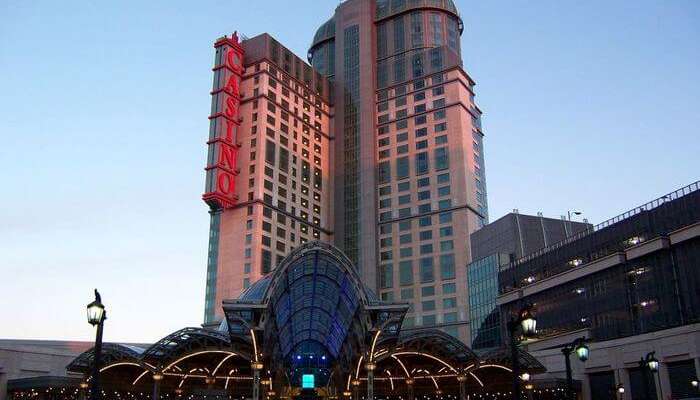
The stunning view in Canada can be only experienced here. The cliff with an overlook of Horseshoe gives the fantastic look of Niagara-falls. The resort is well-built along with a casino mentioning three thousand slots and 120 stacking tables. The tables are present from classics to let it Ride poker contest. The hotel has 374 luxury rooms with a full-fledged casino. Ontario’s best casino award was recently won by the Niagara Falls View Casino.
Location: 6380 Fallsview Blvd, Niagara Falls, ON L2G 7X5, Canada
8. River Rock Casino Resort, British Columbia
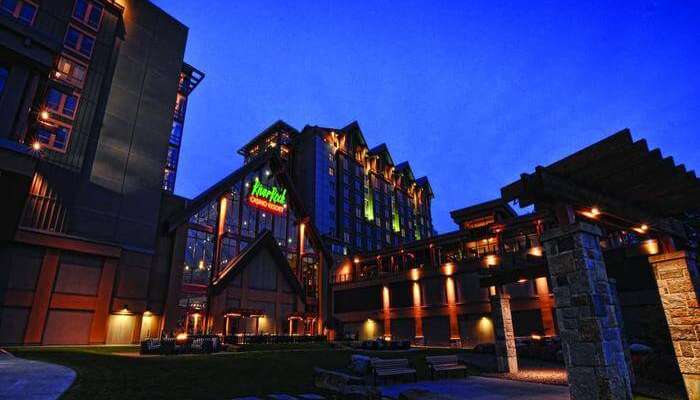
The location is quite adequate and near the Vancouver National Airport. Many of the visitors from the airport make a visit here. The casino manages over a thousand slot machines, horse racing gambling, and VIP room. It is also popular for hosting the international championships of Poker game in 24 hours. There are a number of luxury suites and rooms. The classic tables included here are craps, baccarat, roulette, and blackjack.
Location: 8811 River Rd, Richmond, BC V6X 3P8, Canada
9. Northlands Park Racetrack And Casino, Alberta
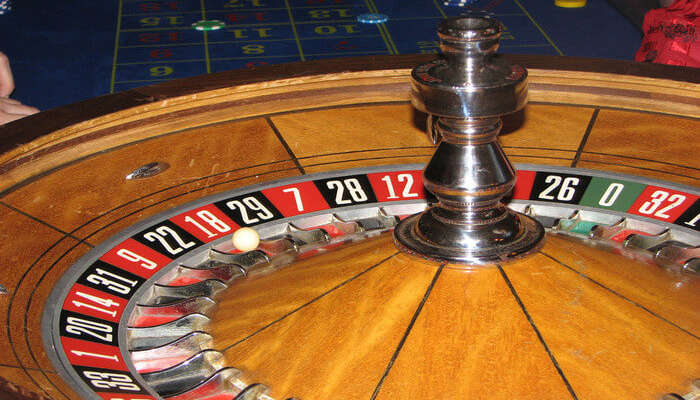
The reputation of Northlands Park Casino is enough to prove its worth. Its location is next to the horse track. Northlands Park Casino is famous for its horse betting games. With 550 slots as well as tables, it includes classic tables like baccarat, craps, roulette, and blackjack. It hosts weekly competitions and tournaments to entertain visitors. The horse betting and horse racing is the most attractive part of the casino. Overall, it is good and a must visit the casino in Alberta.
Location: 7410 Borden Park Rd NW, Edmonton, AB T5B 4W9, Canada
10. Medicine Hat Lodge Resort, Alberta

It is not a doctor mentioned services. It is made up in the area of 27,000 Sq. Ft. It is a top-notch casino with proper family accommodation, spas, restaurants, waterslide parks. It includes ten tables being classic in nature. It offers family packages as an integral part of the casino. You can get everything in this casino ranging from kids to adults playing. There are some fixed slots where players play with undefined entertainment. It is considered one of the best land casinos in Canada.
Location: 1051 Ross Glen Dr SE, Medicine Hat, AB T1B 3T8, Canada
Casinos are untimely one of the most played games online and offline. Some of the best cities in the US manage these casinos in numbers. Many of the resorts and hotels have an attached casino with admirable slot machines and classical tables. Some of them may also support horse riding and betting facilities. So, plan a trip to Canada andmake a visit to one of the best casinos in the world.
Looking To Book A Holiday Package?
Book memorable holidays on TravelTriangle with 650+ verified travel agents for 65+ domestic and international destinations.
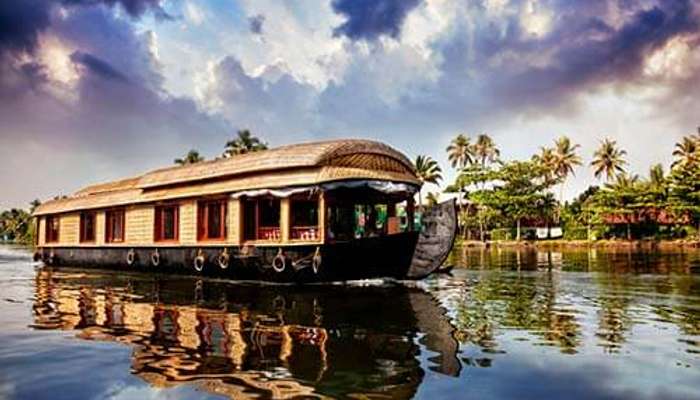
Spellbinding Cochin Family Tour 2D/1N Package @ Rs 2,750


Himachal Family Tour Package 4D/3N @ Rs 8,750
Get quotes from multiple travel experts.


Exciting Andaman Family Trip 5D/4N @ Rs 10,250
Compare & customize quotes before booking.


Gangtok & Darjeeling Tour Package 5D/4N @ Rs 13,000
Have Questions? Talk to our travel experts today.


Wonderful Goa Family Package 3D/2N @ Rs 6,500

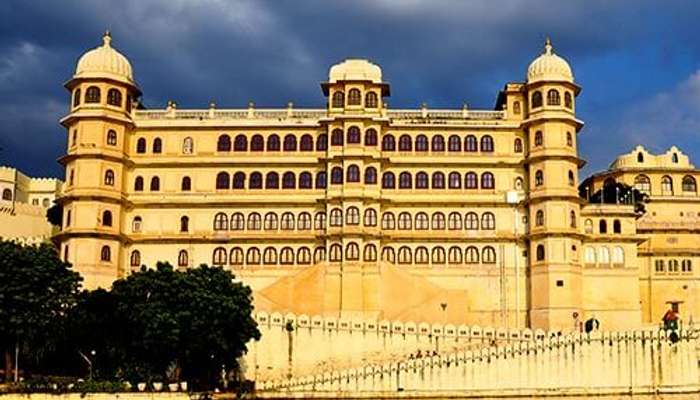
Riveting Rajasthan Vacation 3D/2N Package @ Rs 6,499


Enchanting Uttarakhand Tour 4D/3N Package @ Rs 7,199
Explore best destinations with our experts.


Delightful South Weekend Tour 3D/2N Package @ Rs 4,999
Thrilling weekend full of fun.


Marvelous Gujarat Tour 3D/2N Package @ Rs 4,999
Talk to our experts today.

See more at TRAVELTRIANGLE.COM

Exploring new places and trying out new food cuisines are two things that bring Seema all the happiness. Travel freak and a die-hard foodie are the synonyms that define her the best. Popular on social media by the name of ‘PandaReviewz’, lazing around the beaches, exploiting the sunset points, visiting the farthermost villages, exploring the renowned cities, trying out new food cuisines, and blogging about them are few things that keep Seema occupied, and happy!
An Overview of the Est. $4.4 Billion Social Casino Gambling Market

I saw a stat (pulled from a decade ago) that said more than 1.6 billion people gamble each year.
Knowing that, would you be surprised to hear that even more people play social casino games? One statistic said that more than 11 million users visit the top social casino games on Facebook daily.
That comes out to more than 4 billion users per year. About 2.5x the number of people who gamble for real money.
Now, that is only the user-base and not money spent or earned. Social games are nowhere near traditional gambling in that sense, where traditional gambling generates $100+ billion each year.
But social gambling is still brand new, and it’s still growing. It’s currently a $3.4 billion niche market with experts estimating it’ll reach $4.4 billion by 2017. It makes up 4% of the overall $91 billion social gaming market – which is comparable to traditional gambling.
The point is this: social casino gaming is a big deal.
So big, in fact, that many traditional poker and casino companies are buying their way into this space. We have a few examples later on, but the most current example is the World Poker Tour. On August 31st, 2016, they announced the launch of their social casino platform, PlayWPT, which includes both poker and slot games.
Anyway, chances are you’re already familiar with social games. Maybe you already have a favorite social slots or blackjack game you play. If not, then we’ll bet you’ve at least seen these games on your Facebook.

If not, that’s okay too. Either way, you’re about to learn (more) about social casino gaming. The following sections will cover:
- What social gaming is.
- How social gambling is different from traditional gambling.
- Social gambling companies and games.
- Risks and downsides (including addiction).
- Thoughts on why social gambling is legal while many forms of (online) gambling is not.
- What the future has in store for social gamers.
What is Social Gambling?
If you do any amount of research on this topic, you’ll quickly find out that everyone has their own definition of what social gaming or social gambling is.
It’s even more confusing when you talk about gambling because social gambling can also mean poker and casino games you play in a home with other people.
But, for our purpose here, social gambling means playing casino games on social networks like Facebook or MySpace.
These games are usually played in your browser or from a mobile app on your tablet or phone.
First timer? Getting started is simple. Here’s the process I went through to launch Zynga Poker on Facebook:
- Logged into Facebook.
- Typed “poker” into the search bar. Found and clicked Zynga Poker.
- Chose what details I wanted to share with them.
- Declined offers to purchase chips or upgrade my account.
- Chose the SNG section. Chose a game to enter.
That’s it. Each game is different, but getting started is as simple as playing at a traditional poker room or casino – minus the need or option to deposit real money.
And that’s because you won’t find real money social gambling. For various reasons. It’s illegal in some countries, and in others …well, real money games have been attempted, but ultimately failed.
To be clear – you can spend money. You can buy chips, gifts for other players, VIP upgrades and all kinds of stuff. It depends on the game you play. But for various reasons – some we discuss below – you won’t receive anything of tangible value.
What Makes Social Games …Social?
What makes these social games – other than being hosted and played on a social network – is that most games include some form of social interaction. This can include any combination of the following:
- Playing with other players.
- Sharing your results with your friends or followers.
- Inviting others to play the game with you.
- Posting awards, accolades and achievements to your profile.
This in turn can create a viral effect that can quickly build a self-sustaining, perpetuating user-base for the game. Assuming the game’s any good, of course.
This is a bit different from traditional gambling in that they need to rely more on advertising and affiliates to grow. Part of this is probably due to the stigma that follows traditional gambling, whereas social gambling isn’t scrutinized as much.
On a smaller level, social gaming companies use different strategies to get you to share and come back to play their games. In many ways they mirror traditional video games, even though social games are less challenging and have shorter game play.
For example, here are two common strategies developers use:
You are given different goals to achieve, each one harder and more time consuming than the last. Each action you take will push you towards a goal that can lead to higher gaming capital.
This comes in many forms, such as badges, trophies, accolades and achievements. These can be earned by playing or by completing tasks, such as sharing the game or your results to your profile.
Gaming capital is one of the biggest differences between social casino games and traditional casinos. The former you’re playing for virtual goods, which we’ll talk more about later, whereas in the latter you’re playing for real money.
From a developer and psychological perspective, they do this to give you meaning; to justify all the time you spend playing or to gain an improved sense of self and to complete goals (thus complete a sense of self).
You also have reason to come back to play more.
Examples of Social Gambling Games
Now that you know what social games are and have an idea of how they work, let’s look at some examples of the top social games, social casino developers, and the games you can play.
Let’s start with the most popular social games. Chances are you’ve heard of some of these:
- Mob Wars
- FarmVille
- Mafia Wars
- CityVille
- Farm Town
- Texas Holdem Poker
- Slotomania
- Blitz Bingo
Here are some of the larger and more well-known social game developers:
- Zynga
- Wooga
- Gameforge
- Bigpoint Games
- Goodgame Studios
- Plinga
- Kabam
- RockYou
Now let’s now look at social casino developers and games. Who are the biggest or most popular developers? And, what are the most popular casino games you can play?
You can play slots and more slots. You can play from your browser or on your tablet or phone using their app. When you sign up they’ll give you free coins to play with. They have more than 5 million users and developed by Playtika (http://www.playtika.com/), who happens to be owned by Caesar Interactive Entertainment.
Bingo Blitz (https://www.bingoblitz.com/)
Also developed by Playtika. Play slots and bingo with unique features such as power ups, collection items and achievements. They have more than 5 million followers on Facebook.
They’ve developed many games, but their specific casino games include Zynga Poker, Zynga Poker Classic, Hit It Rich! Slots and Wizard of Oz slots. Their Texas HoldEm Poker app has 66,779,000+ likes and more than 5 million players. You can see their casino games here.
DoubleDown Casino (http://www.doubledowncasino.com/)
This is from IGT. They offer more than 70 different slots, as well as video poker, blackjack, roulette and more. One of the benefits to playing here is you get to play slots like Wheel of Fortune, Double Diamond, DaVinci Diamonds, The Ellen DeGeneres Show slots – and many others exclusively from IGT. They have more than 7.6 million Facebook followers and 1 million players.
Big Fish Casino (http://www.bigfishgames.com/)
They offer a large variety of games, too. You can play craps, slots, blackjack and roulette. They offer 100,000 free bonus chips, free spins, bonus games, jackpots and free daily games. They have more than 759,000 followers and 100,000 users.
High 5 Casino (https://www.high5games.com/)
Play more than 170 slot machines. They have more than 1 million followers and 13 million users.
There are many others. We haven’t even begun to scratch the surface. A search on Facebook or in the Apple or Android app store will reveal tons of game and app options.
The 5 Biggest Differences Between Social Casino Games & Traditional Gambling
Let’s now look at 5 examples of how social casino games are different from traditional casino games. Keep in mind many, if not most of these examples will apply to ALL social network games – not just casino.
- You have the community vibe. This is more the case with games like blackjack and poker, though, rather than slots and roulette.
- It’s sharable. You won’t see someone bragging about how they’re playing slots on 888 or poker on 5Dimes. Too many people have negative views on traditional gambling.
However, since no money’s at risk, people are less wound up about freemium or social casino games. Thus, more people are open to sharing their results.
How Social Casino Developers Make Money
Believe it or not, these companies don’t exist just to entertain you. They’re also in it to make money.
Here are the different ways they accomplish that:
Virtual Goods
This covers a wide assortment of things. This can be power ups, more chips/coins, avatar accessories, decorative items or virtual gifts you can send to another player. Often times – depending on the game – virtual goods can help you get farther in the game, or achieve a higher score.
Advertising
This can include banner or contextual advertising, much like you’d see on websites, apps on your phone, on Google’s search engine, and more. Ad inventory is offered to advertisers; when an ad is shown, or when a user clicks the ad, money is both spent/earned.
Product Placement
This is sort of like a movie or TV show. A game can inject a product or brand into the game in some way. In-game product placements can cost hundreds of thousands of dollars depending on the placement and how popular (how many users, activity, etc.) the game is.
Lead Generation
This often goes hand in hand with advertising. However, what’s unique about lead generation in social gambling is you’ll see offers to sign up for goods or services in exchange for virtual gifts – some form of advancement or in-game perk.
White Label
The developer creates the game, but leave it open for branding. Then someone can buy/lease the game – likely with their own plans for monetization – and brand it however they want.
These are the most common monetization methods. However, sometimes a developer will try a unique way to make money.
Take Zynga, for example. Back in 2013 they decided to launch both real money poker and casino apps to the 18+ crowd in the UK on Facebook.
But no more than 14 months later they decided to close both real money options because they struggled to convert free money players into real money players. This is a challenge even online casinos and poker rooms struggle with today.
Are There Any Downsides or Risks to Social Gambling?
Are there any actual consequences to social gambling?
We found an interesting interview at VegasSlotsOnline.com where game developer Diana Gruber talked briefly about social gambling.
One of the interesting things she pointed out is that social gaming is more like shareware than traditional gambling. Here’s why that’s interesting (emphasis ours):
Yes, because gambling is regulated and shareware is not. In a shareware game, anything goes. You can completely control the player experience. You can make their luck run in streaks. You can give them volatility like a roller coaster. You can change the RTP so they win all month and go broke on payday. If you have an idea and you think it will give you a competitive edge, there is nothing stopping you from trying it in a social gaming environment.
Social casino developers can do anything. They can create a faux experience that is unlike what you’d actually experience in a real money casino.
It might lead the person to signing up to a real money casino with unrealistic expectations. Or, maybe manipulate them into buying in-game purchases to try to win more often.
Can you see how this could be dangerous?
Dr. Mark Griffiths, a Professor of Gambling Studies at Nottingham Trent University’s International Gaming Research Unit, agrees (emphasis ours):
Dr. Griffiths says that the behavioural and social conditioning of social slots and gaming is no different to real-money gambling, apart from the fact you’re not “risking” real money:
But here’s where we think “it depends.”
We feel like there’s got to be some personal accountability. That the person playing should have educated themselves on how gambling works. And, at the very least that the casino has an advantage on nearly every bet made under their roof.
That’s what we mean by “it depends.” At some point you have to place the responsibility onto the player.
But that’s in a perfect world, not the one we live in. And we have to create laws, rules and regulations that protect the lowest common denominator – the gullible people who fall too easily for pipe dreams.
Anyway …that’s one potential danger.
Another is the addictive nature of these games. They’re still casino games, which encourage you to play more through bells, whistles and small wins.
Then there’s the achievement aspect of these games. Where you’re encouraged to play as much as you can to achieve as much as you can. This is even more addicting when you’re able to share this to social platforms to brag to your friends – or challenge them to beat your score.
According to Dr. Griffiths this can be bad too. That addictions don’t have to come down to winning or losing money. But that addiction can also come in the form of time spent. The time you lose playing these games can have a negative impact on your life, too.
And then you have the risks associated with freemium games that have in-game purchases. No doubt you’ve heard the stories of kids or teenagers playing freemium games, only to buy in-game options or cheats to advance levels or unlock stuff.
Their parents don’t know any better …until the phone bill comes in the mail, with hundreds or even thousands of dollars in additional charges.
So, those are some of the bigger risks or downsides to social casino games. It’s still gambling, and depending on the game you play, there are still opportunities for you to spend money …even lots of it.
But not everyone agrees social casino gambling is dangerous. According to Christoph Jenke, the COO of social betting game Crowdpark:
No idea – he’s certainly biased. But lawmakers have no idea, either. They’re still trying to figure out whether social gambling needs to be regulated or not.
Why is Social Gambling Allowed When Real Money Gambling Isn’t?
Because social gambling games are similar, if not identical to real gambling games – and also have addictive qualities – there have been many debates about whether or not social games need to be regulated.
Probably the biggest reason why they’re legal in the United States is that you can’t get/win money out of the game. That’s the conclusion Venture Beat came to back in 2009.
First, they brought up both the Wire Act and UIGEA. But both of these are vague and don’t cover apps.
Then they talked about each individual state. Each state defines gambling as betting on a game of chance. But then some games are a game of chance in one state, while in others it’s a game of skill.
The one common denominator they found is that gambling involves putting up something of value to get something of value back out. And that’s something that applies to most states, too. So, they took that and applied it to a social casino app.
Here’s their thought process:
- You (can) put money into the system. Just like a traditional casino game.
- What about the game? Is it a game of skill or game of chance? The powers to be says it doesn’t matter because you can’t collect money from it.
- But what about virtual goods – what are they worth? How do you define their value? Now this is where things get interesting.
One example they gave was about how, in Japan, you can play Pachinko (a casino-like game) and earn currency in the form of small metal balls. These balls can be traded for real-world items – even cash – without consequence. They concluded – and we agree – this isn’t any different than traditional gambling.
Venture Beat asked Matt Jacobs, a Sacramento-based former federal prosecutor who has worked on some gambling related cases. Here’s what he had to say:
One of the potential issues in some games is how you get virtual goods out. Game developers will say ‘they’re not really being played for money, that what you win is not money.’ I’m not sure that this ultimately works. You’re getting something of value, or at least of arguable value. These goods are advertised as costing money, even just a buck or two. You can win virtual currency that’s clearly equivalent to real money, and use that to buy virtual gifts.
Makes sense. And it’d mean that receiving anything – even small metal balls – would be illegal in the United States. Especially if they were exchanged for goods or money – even if on the secondary market, as you’ll see in a second.
Then Venture Beat looked at Zynga’s Texas Holdem. They wanted to see if it fit the definition of gambling. Back then this game brought in the largest portion of the company’s revenue.
- You get chips when you sign up. You get even more each time you log in.
- Then the game lets you buy virtual chips or take advertising offers to get them. This is also how you reach the top tables without having to earn your way.
So, what happens to your money? Zynga’s chief executive says, nothing – you can’t take money out of the game in any form of value. You don’t even win virtual prizes that are worth money.
And that seems to be the one key difference – the very reason why you can play social casino games legally in the United States. Money can go in, but you receive nothing of tangible value in return.
That said, there are second hand markets for virtual goods such as Zynga chips. These sites are often credit card fraud rings who buy chips and then re-sell them. And the crazy part?
Social gaming companies are responsible for them – what they do and what they sell – whether they own them or not. This is seemingly unlike Japan, where companies apparently are getting away with players exchanging their metal balls for things of value.
Speaking of virtual goods, Venture Beat also considered the virtual gifts you can send to others. The law is even cloudier here. Facebook, at the time, limited you to sending 16 gifts per day, which only cost 5-10 in game chip-dollars (that’s nothing compared to the number of chips you receive when you log in).
In terms of value, the question posed was whether you were getting any value outside of the thought of posting a gift to someone’s wall. Maybe not, but then what happens if/when that gift’s actually worth something? When it has verifiable retail value – what do you do then?
That’s what lawmakers will have to figure out if they want to regulate the market – if they even see a need to. Who knows? Like traditional gambling there are people on both sides of the debate.
For now, it seems to be fine so long as you’re not receiving anything of value.
What Does the Future Hold for Social Gambling?
Another interesting thing we found from Venture Beat was their coverage of the 2015 Casual Connect Tel Aviv conference. There, Adam Krejcik, an analyst at Eilers Research, provided his 13 predictions of the social casino market.
Most of them apply to social game companies. However, he did predict a handful of things players will find exciting.
Developers will create more skill-based games.
They’re looking at the current trends – esports, daily fantasy sports betting and the general focus on skill gaming (which you can see in other social gaming apps like Candy Crush). They said random games of chance tend to appeal to the older crowd. Adding skill games will allow them to reach to the younger crowd.
Live dealer games will become more popular.
This is similar to traditional online gambling. They said some companies are experimenting with live dealers in order to make the came even more social. They say poker is a good example. But we think blackjack, baccarat and roulette would be good choices, too.
Casino games will monetize on Oculus Rift.
Adam thinks it’ll be a while before VR googles become a big market. But when they do social casino games will be one of the first genres to monetize it well – by creating an entertaining and engaging Vegas-style experience.
Big gaming equipment suppliers will open up.
He says that the big known slot machine makers like IGT already have their own social casino games (like the DoubleDown casino we mentioned earlier). He thinks customers will want more, and may even force suppliers to license their digital social games on a third party basis. In other words, your favorite real money casino games may be ported online to social media platforms.
Amaya (and PokerStars) will get serious about social games.
PokerStars is the biggest real money poker room and casino online. And because social casino games are such a lucrative market, it’s only a matter of time before they enter it.
You can read all of their predictions here. All we know is we’re excited to see what
So, let's define, what was the most valuable conclusion of this review: Gambling Addiction Addiction to gambling is linked to a range of serious personal and social harms such as depression and suicide, bankruptcy, family breakup, domestic abuse, assault, fraud, at Social Gambling in Canada
Contents of the article
- Gambling Addiction
- Gambling in Canada
- Types of Gambling
- Casino Gambling
- Age Requirements
- Destination and Resort Casinos
- Ontario
- British Columbia
- Quebec
- First Nations Casinos
- A Brief History of Gambling in Canada
- Social Gambling in Canada
- Casino Gambling
- Online Gambling
- Sports Betting
- Terminal-based Gaming
- Where Does That Leave Us?
- Problem Gambling
- Overview
- Signs & Symptoms
- Behavioural signs of problem...
- Emotional signs of problem...
- Financial signs of problem...
- Health signs of problem...
- Causes & Risk Factors
- Diagnosis & Treatment
- An Overview of the Est. $4.4 Billion...
- What is Social Gambling?
- What Makes Social Games …Social?
- Examples of Social Gambling Games
- The 5 Biggest Differences Between...
- How Social Casino Developers Make Money
- Why is Social Gambling Allowed When...
- What Does the Future Hold for Social...
- Developers will create more skill-based...
- Live dealer games will become more...
- Casino games will monetize on Oculus...
- Big gaming equipment suppliers will...
- Amaya (and PokerStars) will get serious...
- 10 Best Casinos In Canada To Enliven...
- 10 Best Casinos In Canada
- 1. Casino Niagara, Ontario
- 2. Casino De Montreal, Quebec
- 3. Caesars Windsor Hotel And Casino,...
- 4. Casino Rama Resort, Ontario
- 5. River Cree Resort And Casino, Alberta
- Planning your holiday but confused...
- 6. St. Eugene Golf Resort Casino,...
- 7. Niagara Fallsview Casino Resort,...
- 8. River Rock Casino Resort, British...
- 9. Northlands Park Racetrack And...
- 10. Medicine Hat Lodge Resort, Alberta
- Looking To Book A Holiday Package?
- An Overview of the Est. $4.4 Billion...
- What is Social Gambling?
- What Makes Social Games …Social?
- Examples of Social Gambling Games
- The 5 Biggest Differences Between...
- How Social Casino Developers Make Money
- Why is Social Gambling Allowed When...
- What Does the Future Hold for Social...
- Developers will create more skill-based...
- Live dealer games will become more...
- Casino games will monetize on Oculus...
- Big gaming equipment suppliers will...
- Amaya (and PokerStars) will get serious...
No comments:
Post a Comment
Note: Only a member of this blog may post a comment.